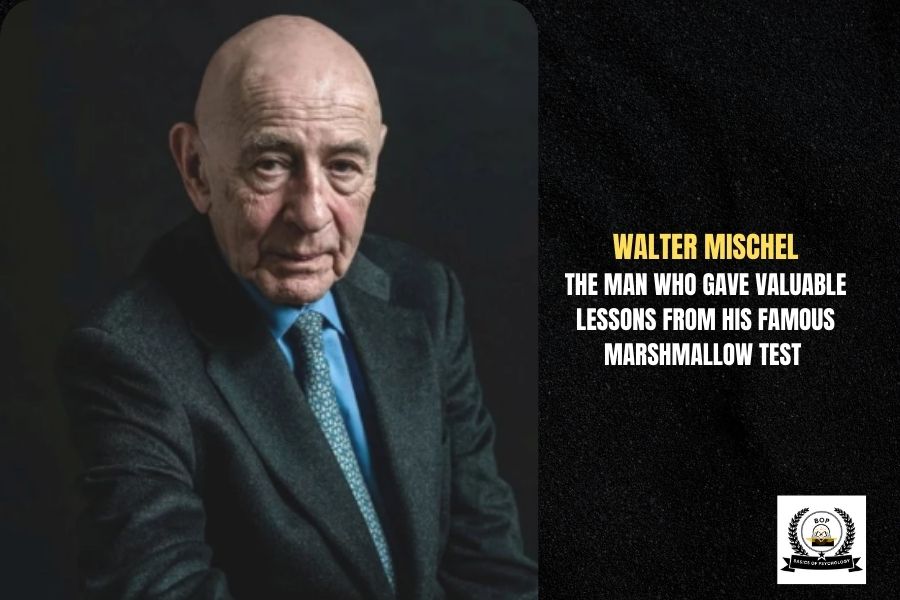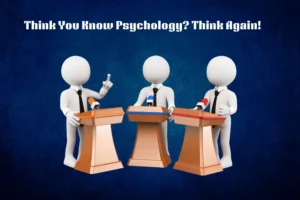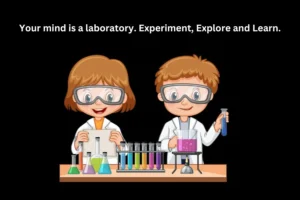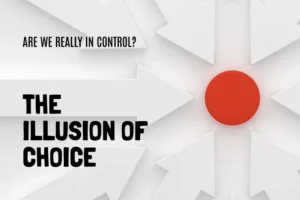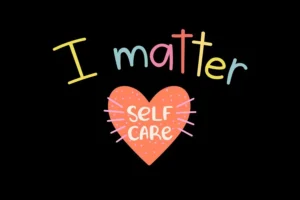Take a trip down the lane of Walter Mischel, a famous psychologist whose controversial theories went beyond traditional beliefs. His journey from being a youth and scholar to becoming a renowned academic shows his thirst for knowledge, adeptness, and unmatched ingenuity.
Get involved in Mischel’s revolutionary contributions to psychology, from his theory of personality to the stanford marshmallow experiment. Investigate how he has changed our way of understanding man through his discovery of self-control, social cognition, and the person-situation controversy. Come along with us as we decode the lasting influence of Mischel on the psychology profession.
Table of Contents
Walter Mischel’s Biography

Early Life
Mischel was born on February 22, 1930, in Vienna, Austria, and he and his family fled Germany in 1938 to avoid Nazism. The way he was raised in a family of Jews, especially during the hardest times, shaped his later views and studies.
Education
Mischel entered New York University for his bachelor’s degree in 1951 and completed his M.D. in clinical psychology at Ohio State University in 1956. His academic path was the grounds of the research pieces he later made in psychology.
Career Journey as a Psychologist
Following his education, Mischel went on to become a well-known psychologist. He taught at different leading institutions, including Harvard University, Stanford University, and Columbia University. His research on personality psychology, social cognition, and self-regulation resulted in some unorthodox theories that turned the existing truths on their head.
Notable Achievements and Awards
Throughout his career, Mischel collected several acknowledgments and honors for his groundbreaking research. He was elected to the American Academy of Arts and Sciences as well as the National Academy of Sciences and other prominent societies.
What Is Walter Mischel Best Known For?
Mischel runs the marshmallow test, which examines the effect of delayed gratification on self-control and academic success. He served as an originator of personality psychology by showing the influence of situational factors on behavior and providing an insightful understanding of decision-making processes.
Walter Mischel’s Theory
Walter Mischel’s Theory of Personality
What Is Personality According to Walter Mischel?
According to Mischel personality theory, personality is not a rigid and unvarying trait but a dynamic system that is affected both by internal cognitive processes and by external factors of the situation.
He stated that trait-based theories of personality, centered on the concept of stable and enduring traits, were limited in terms of explanation of such complexity. On the contrary, Mischel maintained that behavior is conditioned by the people’s interpretations and evaluations of the situation, commonly referred to as cognitive-affective units. Such units still act as filters that allow people to see and react to their surroundings differentiating their behavior from one situation to another.
According to Walter Mischel theory, situation-specific cues play a significant role in behavior formation. For instance, someone may be aggressive in a competitive work environment but passive in a social setting. This variability disproves the phenomenon of trait consistency and reminds us of the necessity of taking into account the settings in which human behavior occurs. Mischel felt that defining the relationship between personality and situation is vital for precise prediction and explanation of behavior.
Walter Mischel Critiqued The Idea of Consistency in Behavior
Mischel’s critique of consistency in behavior originated from his basic research that included the marshmallow test which looked into delay in gratification of children. In this experiment, children were asked to choose either immediate pleasure (eat one marshmallow) or delayed pleasure (wait for some time to receive two marshmallows). Children who delayed gratification were more likely to achieve better academic outcomes and social competence later on in their lives.
He saw, nevertheless, that there was a considerable range in the capacity of children of impulse control and self-discipline in different circumstances. These results discredited the conventional perception of personality as a collection of enduring characteristics and instead emphasized the ability to consider contextual factors when explaining behavior.
Walter Mischel’s Marshmallow Test
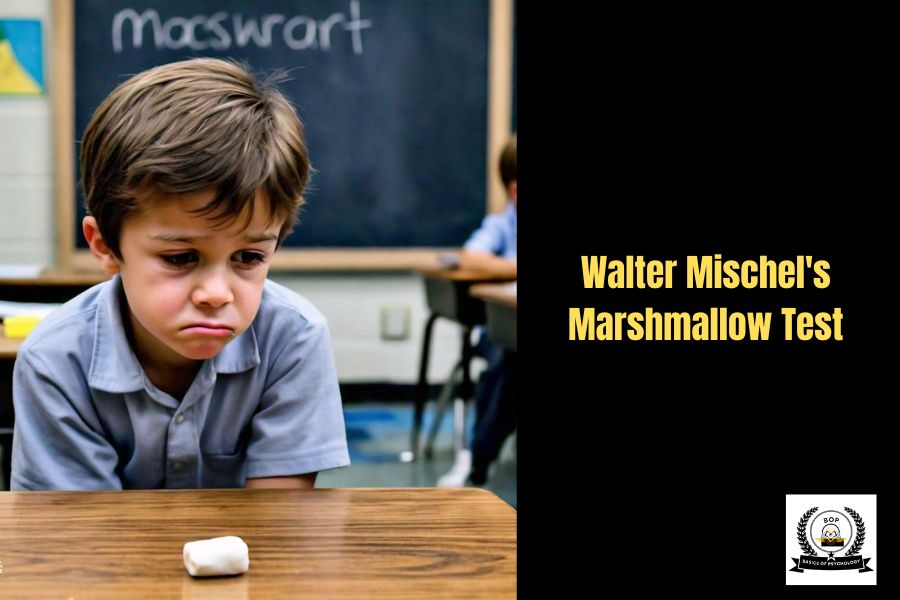
What Is Walter Mischel’s Marshmallow Test?
Introduction to The Marshmallow Test and Its Significance
The Marshmallow Test was carried out by Mischel in the 60s and 70s and is an influential study in psychology that studies self-control and delayed gratification in children. This experiment may imply the key points in human activities, especially decision-making, self-control, self-discipline and long-term efficacy.
Description of The Experiment and Its Methodology
During the Marshmallow Test, young kids had to decide whether to take an immediate reward (1 marshmallow) or to wait for a specific time (usually around 15 minutes) to receive a larger reward (2 marshmallows).
The study was undertaken in a detached environment where the child was left alone with the treat and watched from a one-way mirror or through video recording. Mischel and his team registered the kids’ reactions, e. g. tactics they applied to resist temptation and the time when they were able to delay gratification.
Walter Mischel’s Marshmallow Test Results
Analysis of The Results and Implications For Self-Control
The Marshmallow Test resulted in quite an interesting finding that struggle with self-control has lasting implications. Walter Mischel marshmallow experiment showed that the children able to defer gratification and resist the immediate temptation of eating the marshmallow later on did better than those who did not in school, social relations, and psychological well-being.
This initial study showed that self-control and self-discipline, as portrayed in the Marshmallow Test, is a definitive determinant of success and adaptability in all life areas as well.
Delayed Gratification Walter Mischel
The research conducted in the field of delayed gratification by Mischel highlights the role of cognitive and behavioral skills in self-control and the accomplishment of long-term goals. He stressed the fact that individual differences such as personality traits and environment affect one’s ability to tolerate delaying gratification.
Marshmallow test suggest the mutability of self-control and give us invaluable insights on how to intervene allowing people to work on their skill of self-control, which is important for education, parenting, and personal development.
Walter Mischel’s Social-Cognitive Theory
Overview of Mischel’s Social-Cognitive Theory
Walter Mischel’s Social Cognitive Theory supplies a holistic approach to comprehending human behavior, centering on the reciprocal relationship between cognitive processes and environmental stimuli. In contradistinction to classical theories of traits that propose that behavior remains unchanged from one instance to another, Mischel’s approach is centered on contextual variables and fluctuations of behavior.
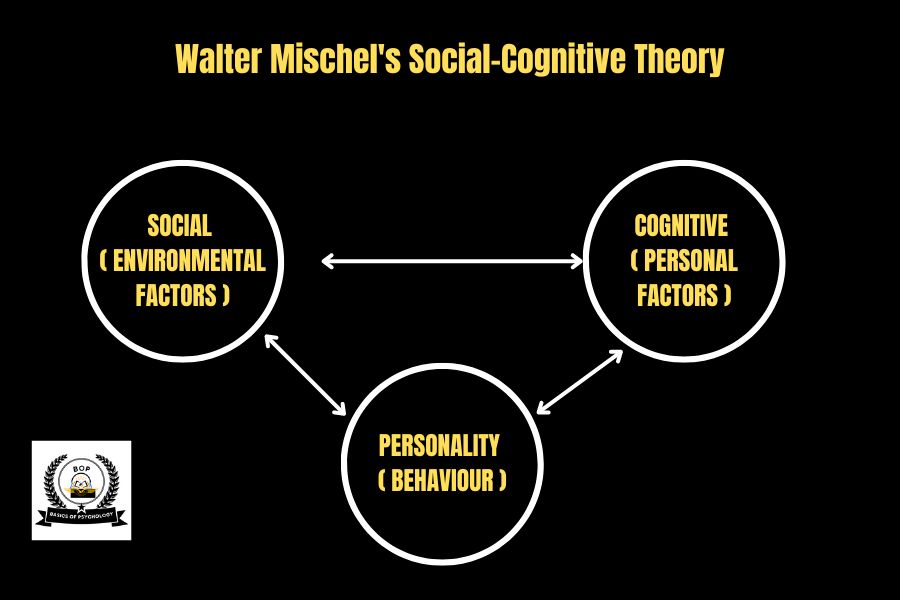
Key Concepts Such as Cognitive-Affective Units and Situationism
Cognitive-affective units represent the foundation of Mischel’s theory, which blends cognition and emotion into guidance processes. They are versatile and responsive, adjusting to the ever-fluctuating circumstances and affecting behaviors within a specific context.
Another significant principle in Mischel’s theory is Situationism, which underlines the role of situational variables in determining behavior. According to Mischel, behavior cannot be fully attributed to internal traits but is also driven by external factors which include but are not limited to social norms, environmental cues, and situational demands. This stance casts doubt on the idea of personality as a constant and unalterable trait, drawing attention to the context in which people act.
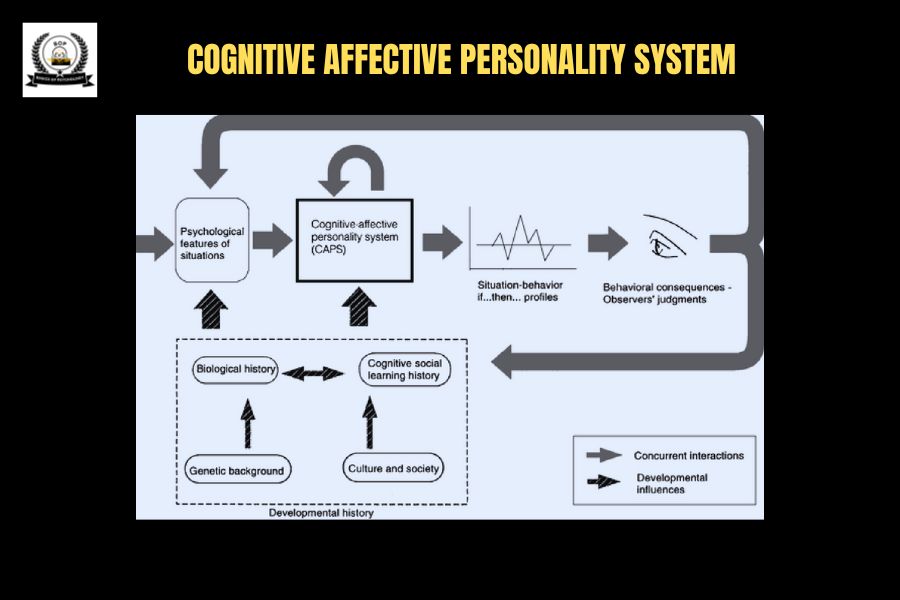
How Walter Mischel’s Theory Differs From Traditional Trait Theories
Mischel’s theory departs from traditional trait theories, such as the Big Five model, by adulating the dynamic nature of behavior and the value of situational context. A trait theory advocates that behavior is fairly consistent in different situations, but Mischel suggests that it is highly variable and depends on the context.
Mischel’s approach in contrast to rather focusing only on internal traits studies how cognitive processes, emotional experiences, and situation variables collaborate in determining behavioral outcomes. Through the inclusion of these aspects, Mischel presents a more complex picture of human behavior which captures its multidimensional nature and explains the changes that can occur with a change in context.
Do you want to gain more detailed insights about trait theories? Click here.
How Did Walter Mischel Resolve The Person-Situation Debate That He Started?
Explanation of The Person-Situation Debate in Psychology
Person-situation debate in psychology is about the question of whether the behavior is driven by internal dispositions (personality traits) or external situational factors. Traditional psychology tended to focus on the continuity of personality characteristics and, as a result, individuals who were thought to be displaying consistent behavior throughout various circumstances. Nevertheless, this perception changed as the influence of the situation on the formation of behavior was highlighted.
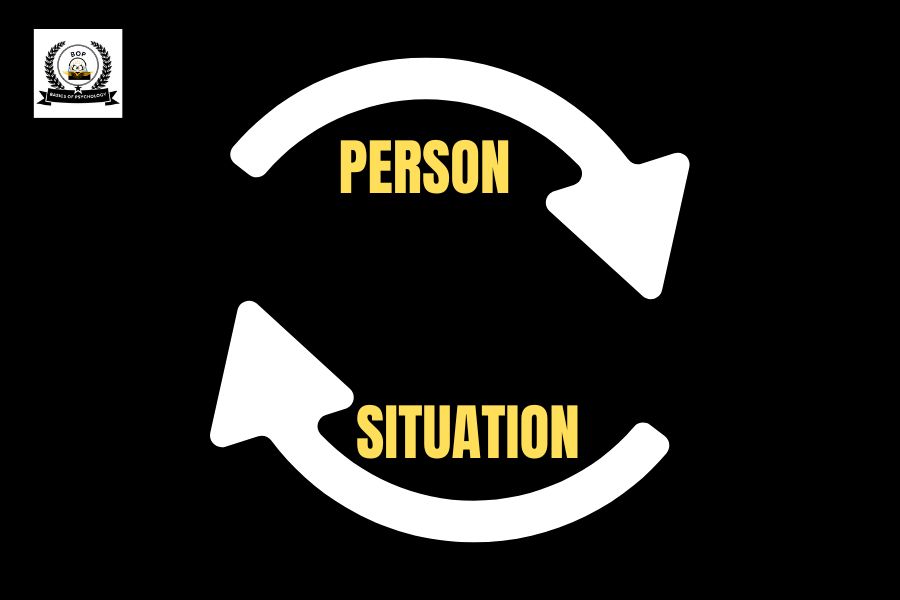
Description of How Mischel Contributed to The Debate
Mischel made significant contributions to the person-situation debate through his experimental findings and theoretical ideas. He carried out important studies to show that human nature is complex and varies in the consistency of personality traits. Mischel’s research emphasized the impact of the situation on the behavior, presenting a case where the reactions of people to the same problem might vary depending on the circumstances.
Analysis of Mischel’s Resolution and Its Impact on Psychology
Mischel’s view of this issue was based on the recognition of the dual role of situational factors and personality traits. He argued for a more complex concept regarding behavior, involving cognitive processes and, thus, the interaction between internal factors and external environments. This kind of perspective was a foundation for the development of social cognitive theories that integrate personality and social psychology.
Walter Mischel’s Contributions to Psychology
Overview of Mischel’s Lasting Impact on The Field of Psychology
The effect of Mischel on psychology is profound and significant, as it has brought about radical changes in our understanding of behavior and personality. His extensive research and creative theory have led to a worldwide debate and revolutionized the discipline. Mischel’s contribution to scientific investigation and his unique personality studies are a phenomenon forever to be grateful for in psychology.
Influence on Personality Psychology and Behavioral Economics
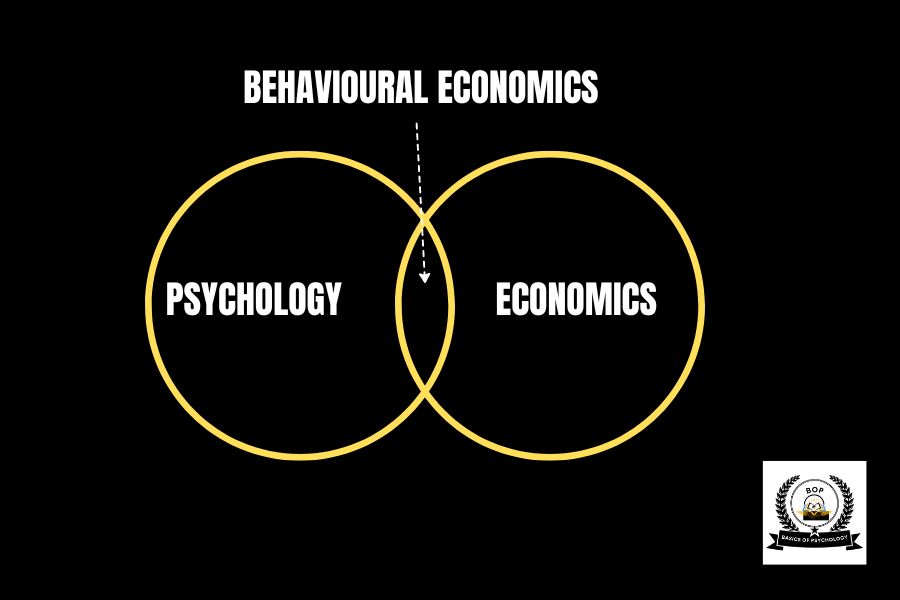
Mischel’s impact is not only considerable in personality psychology but also in behavioral economics. He disproved the earlier beliefs about fixed personality traits and highlighted the role of social context on behavior. This outlook has radically transformed those fields, creating a new window to our decision-making processes and human behavior in varied situations.
Ongoing Research and Applications of Mischel’s Work
Mischel’s theories have continued to influence studies and applications in the field of psychology to date. Researchers are building on his ideas that go beyond his social cognition and personality development theories to clinical interventions.
On top of this, Mischel’s work on mastering of self-control and decision-making is the basis of interventions aimed at increasing people’s welfare and achieving long-term goals. His legacy continues to inspire more and more generations of scholars with his research being just as relevant and potent today as it was in the early years of psychology.
Walter Mischel Books
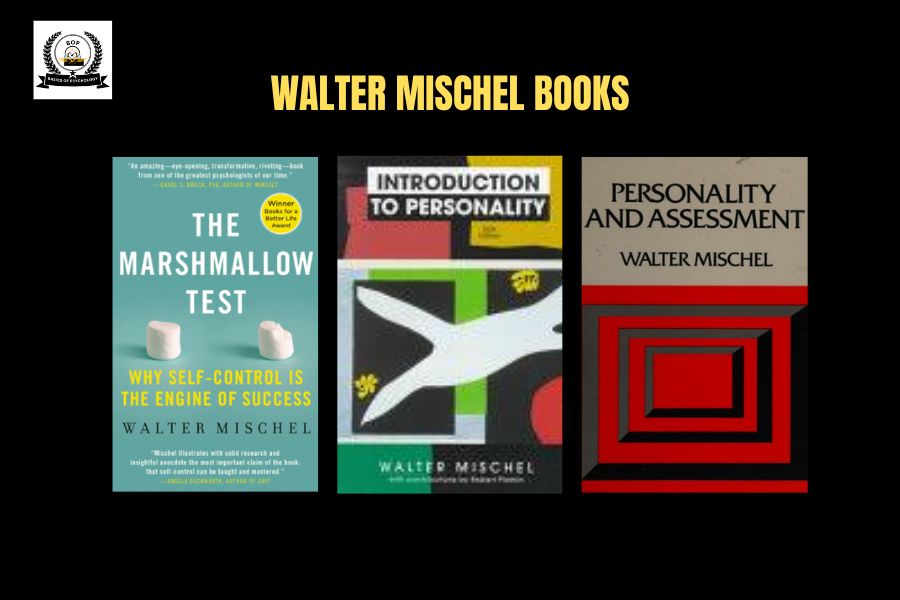
He wrote several famous works that made substantial contributions to the science of psychology. Here are a few of his notable works:
| Personality and Assessment” (1968) | Challenges conventional wisdom on personality by highlighting the importance of situational influences in behavior. |
| Cognitive and Attentional Mechanisms in Delay of Gratification” (1981) | Investigates the Marshmallow Experiment, concentrating on self-control and cognitive processes. |
| Introduction to Personality” (2004) | Students and researchers will benefit from an overview of current personality theories and research. |
| The Marshmallow Test: Mastering Self-Control” (2014) | Mischel’s research on self-control and its impact on life outcomes is discussed, with practical techniques for development provided. |
Walter Mischel Quotes

Here are some important statements and concepts attributed to him:
“People have a remarkable capacity to see what they expect to see.”
“The healthy personality can turn situations into opportunities.”
“If you can’t predict something at all, it is random noise; if you can predict it perfectly, it is determined.”
Conclusion
In conclusion, Mischel’s life and work are the most distinctive achievements of psychological science. Mischel has come a long way, from his early years to his famous research, his journey as a psychologist has been a vivid reflection of his deep commitment to investigating the intricacies of human behavior.
At the heart of Mischel’s theoretical framework is his influential personality theory that contradicted the traditional dogma of behavioral consistency. Mischel used the marshmallow test to highlight the role of self-control and delayed gratification, which brought a new understanding of the connection between thinking and acting. In addition, his social-cognitive theory contributed a sophisticated point of view on personality, where cognitive-affective units and situationism were highlighted.
Mischel’s contributions went beyond the theory, as he played an essential role in solving the person-situation controversy in psychology. His work is still influencing the research in personality psychology and behavioral economics because it motivates new generations to explore the intricacy of human behavior with creativity and thoroughness.
FAQS
Who is Mischel and what is his contribution to psychology?
Mischel was a distinguished psychologist who became a household name by his landmark research contributions in the domain of personality theory and self-regulation. Pas utilisé le marshmallow test le plus attrayant, il a étudié la notion de ` résistance à la tentation` et son influence potentielle sur le futur succès.
What is the Marshmallow Test, and what did it reveal about self-control?
The Marshmallow Test, an experiment proposed by Mischel in the 60s, made children choose the right option between eating the marshmallow and then waiting for some time to finally have both. The study has shown that there is a connection between the capacity of children to delay gratification and later-in-life responsibilities, including academic success and social competence.
How did Mischel’s findings challenge traditional views of personality?
Mischel’s study defied the traditional theory that personality is immutable, instead exemplifying behavior as contingent on the prevailing situation. He stressed that context and cognition were critical for understanding human behavior, hence getting rid of the traits and moving to situations.
What are the implications of Mischel’s work for education and parenting?
The findings of Mischel have a great connection with education and upbringing pointing out the vitality of child training in self-control and happiness delay. Apart from this, perception of the plasticity of behavior can assist in devising plans that are aimed at improving the studying skills and behavior of children.
What is the legacy of Mischel’s contributions to psychology?
The legacy of Mischel’s marshmallow test impacts not only the field of personality psychology but also the study of social psychology and behavioral economics. The fact that he pointed out the dynamic feature of behavior is still influencing our knowledge of human behavior and decision-making.

